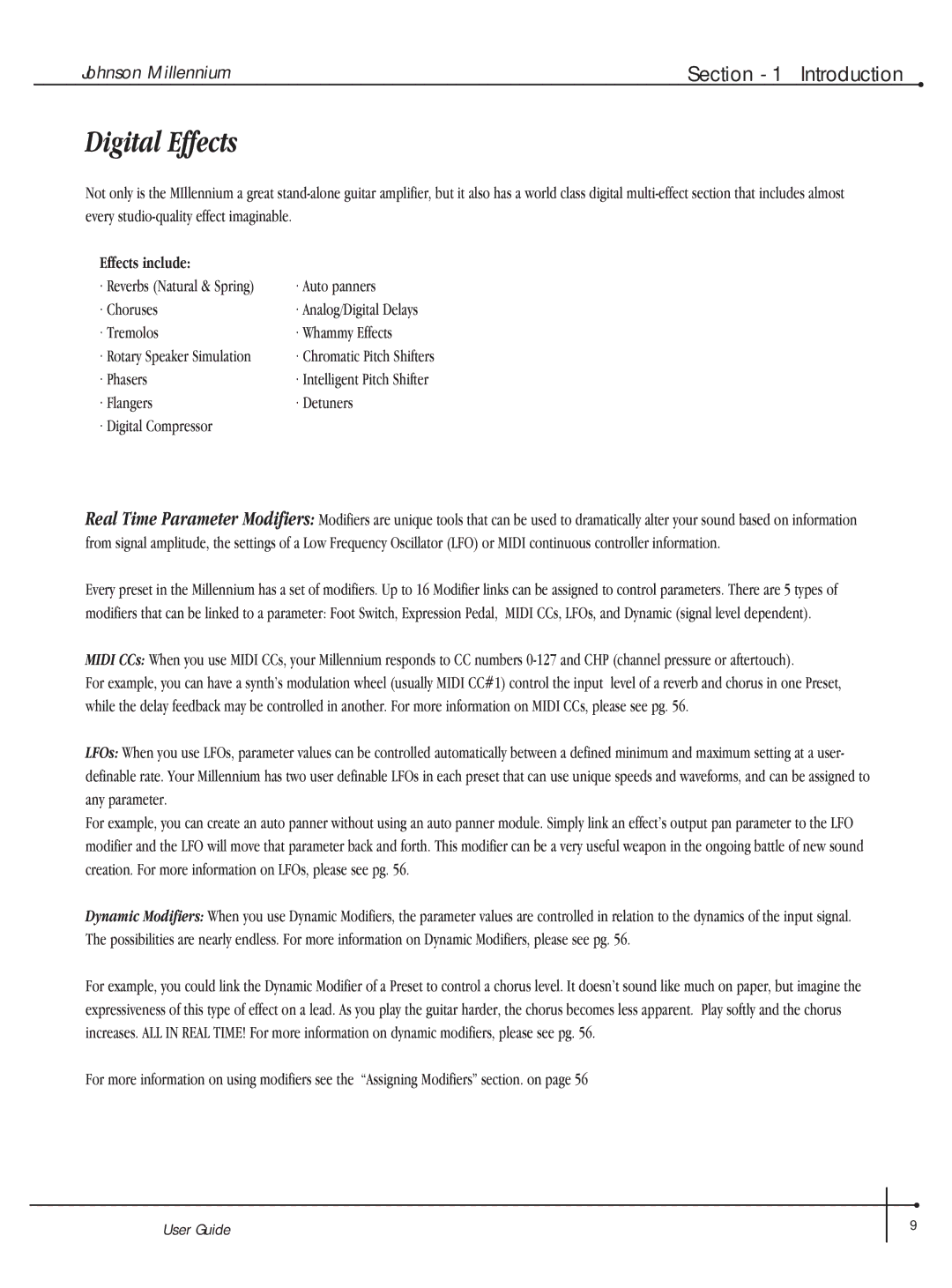
Johnson Millennium
Section - 1 Introduction
Digital Effects
Not only is the MIllennium a great
Effects include: |
|
• Reverbs (Natural & Spring) | • Auto panners |
• Choruses | • Analog/Digital Delays |
• Tremolos | • Whammy Effects |
• Rotary Speaker Simulation | • Chromatic Pitch Shifters |
• Phasers | • Intelligent Pitch Shifter |
• Flangers | • Detuners |
• Digital Compressor |
|
Real Time Parameter Modifiers: Modifiers are unique tools that can be used to dramatically alter your sound based on information from signal amplitude, the settings of a Low Frequency Oscillator (LFO) or MIDI continuous controller information.
Every preset in the Millennium has a set of modifiers. Up to 16 Modifier links can be assigned to control parameters. There are 5 types of modifiers that can be linked to a parameter: Foot Switch, Expression Pedal, MIDI CCs, LFOs, and Dynamic (signal level dependent).
MIDI CCs: When you use MIDI CCs, your Millennium responds to CC numbers
For example, you can have a synth's modulation wheel (usually MIDI CC#1) control the input level of a reverb and chorus in one Preset, while the delay feedback may be controlled in another. For more information on MIDI CCs, please see pg. 56.
LFOs: When you use LFOs, parameter values can be controlled automatically between a defined minimum and maximum setting at a user- definable rate. Your Millennium has two user definable LFOs in each preset that can use unique speeds and waveforms, and can be assigned to any parameter.
For example, you can create an auto panner without using an auto panner module. Simply link an effect's output pan parameter to the LFO modifier and the LFO will move that parameter back and forth. This modifier can be a very useful weapon in the ongoing battle of new sound creation. For more information on LFOs, please see pg. 56.
Dynamic Modifiers: When you use Dynamic Modifiers, the parameter values are controlled in relation to the dynamics of the input signal. The possibilities are nearly endless. For more information on Dynamic Modifiers, please see pg. 56.
For example, you could link the Dynamic Modifier of a Preset to control a chorus level. It doesn't sound like much on paper, but imagine the expressiveness of this type of effect on a lead. As you play the guitar harder, the chorus becomes less apparent. Play softly and the chorus increases. ALL IN REAL TIME! For more information on dynamic modifiers, please see pg. 56.
For more information on using modifiers see the “Assigning Modifiers” section. on page 56
User Guide
9
